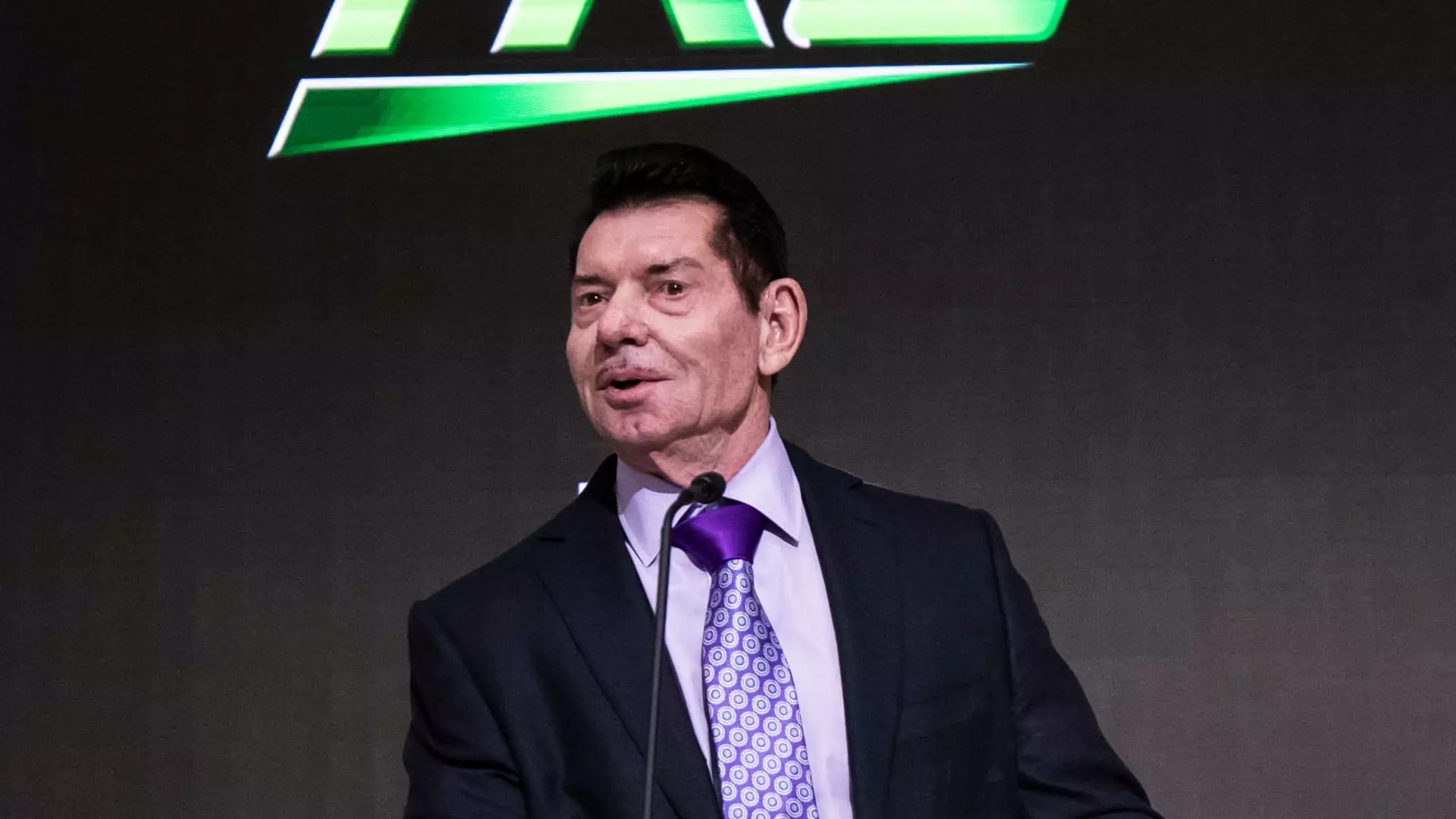The recent charges filed by the Securities and Exchange Commission (SEC) against Vince McMahon, the former boss of World Wrestling Entertainment (WWE), have reverberated through the corporate and entertainment worlds. Accusations of failing to disclose settlement agreements worth approximately $10.5 million shed light on the often opaque intersection between personal conduct and corporate governance. This article seeks to dissect the implications of these charges, the reactions from McMahon himself, and the broader lessons for corporate accountability.
On the surface, the SEC’s allegations against McMahon may seem like a series of administrative missteps involving “minor accounting errors.” However, closer scrutiny reveals much more significant issues rooted in corporate governance principles. The SEC found that McMahon’s nondisclosure of settlement agreements circumvented WWE’s internal accounting controls, leading to material misstatements in the company’s financial reports for 2018 and 2021. These actions ultimately resulted in an overstated net income, suggesting a troubling disregard for financial integrity.
The failure to report these settlements not only presents a troubling ethical dilemma but raises questions about the efficacy of WWE’s internal compliance mechanisms. It is not merely the financial mismanagement that stands out, but rather the broader narrative of power dynamics at play, exacerbated by the significant influence McMahon has wielded over WWE for over four decades.
McMahon’s case touches on crucial elements of corporate governance, particularly the responsibilities of leaders to uphold ethical standards and maintain transparency. Upon examining the SEC’s findings, it is apparent that a breakdown in effective governance practices allowed McMahon to operate without proper oversight. The SEC’s conclusion that he received incentive-based compensation based on the overstated financials is particularly damaging. When corporate leaders prioritize personal gain over organizational integrity, it sets a dangerous precedent that can undermine investor trust and stakeholder confidence.
This situation also emphasizes the necessity for companies to implement robust internal controls that can detect and rectify discrepancies before they escalate into significant compliance failures. WWE’s experience serves as a cautionary tale for other organizations, reminding them that the costs of neglecting internal accounting systems and ethical standards can be extraordinarily high, not just in financial terms but also in reputational damage.
In response to the SEC findings, Vince McMahon sought to downplay the severity of the situation, framing the resolution as an opportunity to close a chapter marked by governmental scrutiny. His assertion that the case revolved around “some personal payments” belies the complexity and far-reaching impact of the allegations at hand. While McMahon may feel relieved to have reached a settlement, stakeholders may not share his view of the situation as merely “minor.”
The climate surrounding WWE has dramatically shifted with the recent merger with Endeavor Group Holdings, forming TKO Group Holdings. As the new entity’s shares are traded publicly, the scrutiny surrounding corporate governance practices will only intensify. The implications for governance structures in a publicly traded company are profound; stakeholders are now more empowered to demand transparency and accountability, especially given the past issues involving corporate leadership.
Lessons Learned and the Path Forward
The Vince McMahon case underscores the importance of robust ethical standards in corporate governance. Organizations need to be vigilant in fostering an environment that encourages accountability and discourages misconduct. The consequences of failing to maintain ethical standards can reverberate not just within the organization but also among investors, audience members, and the broader public.
Moving forward, McMahon’s situation could serve as an important lesson in reinforcing compliance frameworks. It compels future corporate leaders to recognize that transparency is not merely a regulatory requirement but a fundamental cornerstone of effective governance. As companies strive to navigate an increasingly complex regulatory landscape, ensuring that such principles are embedded within their culture will be paramount to sustaining growth and maintaining trust with stakeholders.
Vince McMahon’s legal troubles with the SEC are a cautionary tale for leaders across industries. As organizations grow and evolve, the need for ethical governance practices becomes not only a legal obligation but a moral imperative. The fallout of this case creates an opportunity for reflection on the integral role of transparency and corporate ethics, shaping a landscape where accountability is not optional but rather essential for long-term success.

Leave a Reply